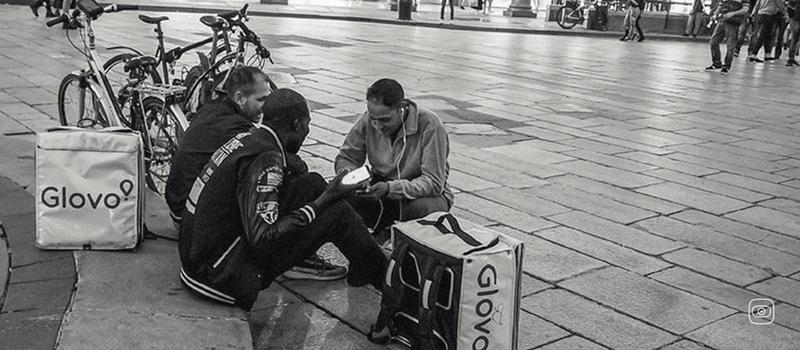The team spoke to around 30 riders on the streets of Bilbao and it became very clear that the biggest health and safety risk is that the vast majority of them are undocumented migrants, working for food delivery platforms via rented accounts.
As such, they cannot access the accident insurance which all riders are supposed to be entitled to. They even fear going to the hospital in case it leads to their deportation.
While the platforms claim to have put in place measures to block illegal working on their apps, the reality is that they benefit from a very large pool of very cheap and deferential labour.
For those riders who can access the insurance, while most were treated well, some felt pressure to go back to work before they were fully recovered.
The insurance offered by the three largest platforms - Glovo, Uber Eats and Just Eat - diverge significantly based on the employment status of the riders. Glovo and Uber Eats' riders are hired on a self-employed basis and have worse insurance than Just Eat riders, who are all employees.
Spain passed the Rider Law in 2021, requiring all food delivery platforms to employ their riders, but Glovo and Uber Eats have refused to do so, racking up hundreds of millions in fines for bogus self-employment as a consequence.
This disobedience with the law has consequences for riders' health and safety, not just in terms of worse insurance, but also in the prevention of accidents from occurring in the first place.
New data shows that rider accidents in Spain have increased rapidly in recent years, while a study from Basque health institute Osalan found that the way in which food delivery is organised - through use of an app via a mobile phone - intensifies these risks.
How can these problems be addressed? The Government is pushing for all of the platforms to fully comply with the Rider Law, but that will do nothing for the 70-75% of riders in Bilbao who work undocumented.
The Spanish Government could issue an extraordinary regularisation to make these riders legal workers, as a previous government did in the mid-2000's for over half a million migrants.
However, such a regularisation is not currently on the cards, and neither do the platforms appear to have much appetite to change course. Consequently, the risks bared by undocumented riders in Bilbao are likely to continue for some years yet.
📷 Creative Commons picture credit: Paolo Lottini


